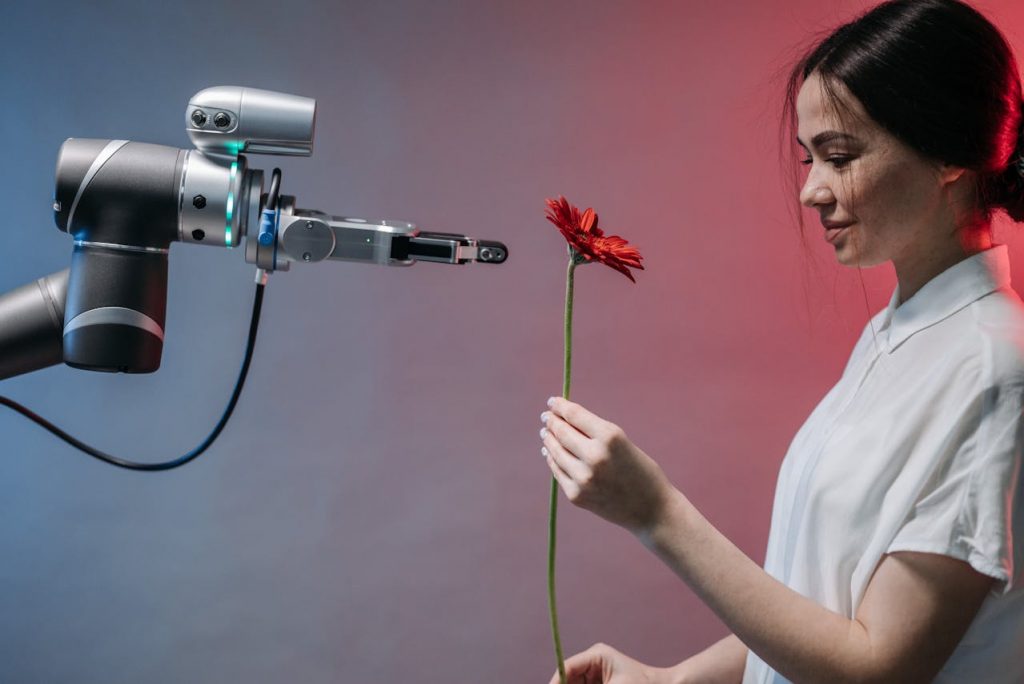Taylor Tran
Taylor is a technical writer at Orient Software - a top-tier IT outsourcing service company based in Vietnam.
The world is turning to a new chapter of digital transformation and technological advancement, and we can expect a multitude of new technologies to...

Image Credits: pexels
The world is turning to a new chapter of digital transformation and technological advancement, and we can expect a multitude of new technologies to emerge every single day. Together with its growth, technology’s impact on various aspects of human life has admittedly transformed it in a positive way. The disruption of artificial intelligence and machine learning, as well as its applications, are nothing but the best evidence of how technology is boosting the productivity and efficiency of human life on a large scale. For example, intelligent robots or algorithms are capable of taking over and completing tedious tasks, making our lives easier.
At the same time, there is another aspect that many people have been debating: could technology affect creativity in any way? It is true that technology has been profoundly changing the ways humans create things, but some argue that it can potentially stifle creativity. And look like the dispute around this topic seems to go on forever, but no answer is finalized yet. In this post, let’s approach this topic and see if technology can indeed affect creativity and how it may do so.
Technology, in general, has played an essential role in human life, and its presence can be observed in almost every sector. It has drastically changed our lives and how we do everyday tasks. Everything from ordering food to shopping for clothes to paying bills and taxes can be done quickly and easily with a few clicks on the computer or smart devices. The Internet of Things (IoT) is the best example we all can relate to when it comes to the role of tech in life. Technology has advanced so much that it is almost impossible for us to imagine what life would be like without it.
Businesses have also seen a significant change in their operational processes, exclusive to technology advancements; communication is faster, accounting systems are automated, and processes are streamlined thanks to technology. Indeed, technology reaches beyond our daily life and into what would have once required a face-to-face meeting; now, it can be done with a video call or an online collaboration platform. It’s becoming increasingly necessary for businesses to adapt to this digital climate as there’s so much potential that it can bring to the organization as well as its customers. During the darkest time of the Covid-19 pandemic, technology came in as a savior when it enabled us to connect with our loved ones and colleagues virtually, thereby keeping us safe and productive.
The advent of AI-driven tools has set foot into all industries and fields, and creativity is not an exception. Today, we are seeing AI writers, AI coders, AI designers, and more. These tools are being used to boost productivity. AI writers can proofread, check grammar and spelling, offer suggestions, and provide feedback on written content faster than any human could do; similarly, AI-driven coding tools can find potential bugs in the code while automatically suggesting fixes. On the other hand, AI-driven design tools allow users to create stunning designs with minimal effort. There is an abundance of online platforms offering such facilities as Adobe’s Creative Cloud, where a user can access all sorts of design-related tools such as Photoshop, Illustrator, etc. so that they don’t have to start from scratch every time they’re working on new project. Apart from this, AR and VR technologies are also being used to create more immersive experiences for users. Companies like Magic Leap, which specializes in augmented reality, are providing a platform that enables people to express themselves creatively through this technology.
Anything has two sides, one good and one bad, and so does technology in the field of creativity. So, tech may affect how we unleash our creativity if we misuse it. Here are a few typical negative effects advanced technologies might have on creativity:
Ultimately, technology is here to stay, but it is still up to us how we use it – for better or for worse. Use it responsibly, and advanced technologies can take our creativity further than ever before and provide us with more efficient ways of creating innovative designs and visuals. On the other hand, if not used correctly, it can act as a barrier, hindering our ability to express ourselves artistically. It’s ultimately up to us to decide how we make use of the tools at our disposal.